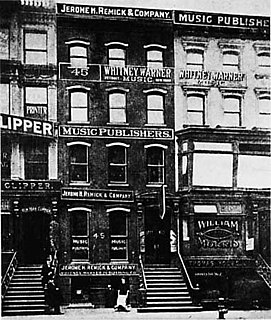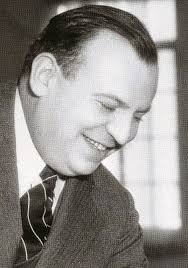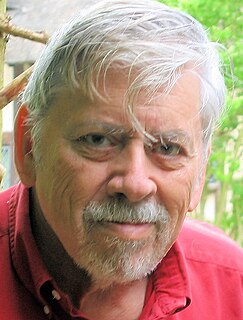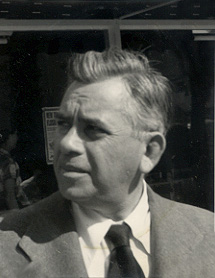Related Research Articles

Karl Heinrich Marx was a German philosopher, economist, historian, sociologist, political theorist, journalist and socialist revolutionary.

Friedrich Engels was a German philosopher, historian, communist, social scientist, sociologist, journalist and businessman. His father was an owner of large textile factories in Salford, England and in Barmen, Prussia.

Lorenz Milton Hart was the lyricist half of the Broadway songwriting team Rodgers and Hart. Some of his more famous lyrics include "Blue Moon," "Mountain Greenery," "The Lady Is a Tramp," "Manhattan," "Where or When," "Bewitched, Bothered and Bewildered," "Falling in Love with Love," "Have You Met Miss Jones?," "My Funny Valentine," "I Could Write a Book", "This Can't Be Love", "With a Song in My Heart", "It Never Entered My Mind", and "Isn't It Romantic?".

Arthur "Harpo" Marx was an American comedian, actor, mime artist, and musician, and the second-oldest of the Marx Brothers. In contrast to the mainly verbal comedy of his brothers Groucho Marx and Chico Marx, Harpo's comic style was visual, being an example of both clown and pantomime traditions. He wore a curly reddish blonde wig, and never spoke during performances. He frequently used props such as a horn cane, made up of a pipe, tape, and a bulbhorn, and he played the harp in most of his films.

Tin Pan Alley was the collection of New York City music publishers and songwriters who dominated the popular music of the United States in the late 19th century and early 20th century. The name originally referred to a specific place: West 28th Street between Fifth and Sixth Avenues in the Flower District of Manhattan; a plaque on the sidewalk on 28th Street between Broadway and Sixth commemorates it. In 2019 the New York City Landmarks Preservation Commission took up the question of preserving five buildings on the north side of the street as a Tin Pan Alley Historic District.

The German revolutions of 1848–49, the opening phase of which was also called the March Revolution, were initially part of the Revolutions of 1848 that broke out in many European countries. They were a series of loosely coordinated protests and rebellions in the states of the German Confederation, including the Austrian Empire. The revolutions, which stressed pan-Germanism, demonstrated popular discontent with the traditional, largely autocratic political structure of the thirty-nine independent states of the Confederation that inherited the German territory of the former Holy Roman Empire. This process began in the mid 1840s.
Bronisław Kaper was a Polish film composer who scored films and musical theater in Germany, France, and the USA. The American immigration authorities misspelled his name as Bronislau Kaper. He was also variously credited as Bronislaw Kaper, Bronislaw Kapper, Benjamin Kapper, and Edward Kane.

Harry Warren was an American composer and lyricist. Warren was the first major American songwriter to write primarily for film. He was nominated for the Academy Award for Best Original Song eleven times and won three Oscars for composing "Lullaby of Broadway", "You'll Never Know" and "On the Atchison, Topeka and the Santa Fe". He wrote the music for the first blockbuster film musical, 42nd Street, choreographed by Busby Berkeley, with whom he would collaborate on many musical films.

The Brill Building is an office building located at 1619 Broadway on 49th Street in the New York City borough of Manhattan, just north of Times Square and further uptown from the historic musical Tin Pan Alley neighborhood. It is famous for housing music industry offices and studios where some of the most popular American songs were written. It is considered to have been the center of the American music industry that dominated the pop charts in the early 1960s.

Alexander Dubin was an American lyricist. He is best known for his collaborations with the composer Harry Warren.

Robert Bernard Sherman was an American songwriter who specialized in musical films with his brother, Richard Morton Sherman. The Sherman brothers were responsible for more motion picture musical song scores than any other songwriting team in film history. Some of the Sherman brothers' best-known songs were incorporated into live action and animation musical films including: Mary Poppins, The Happiest Millionaire, The Jungle Book, The Many Adventures of Winnie the Pooh, Chitty Chitty Bang Bang, The Slipper and the Rose, and Charlotte's Web. Their best-known work is "It's a Small World ," the most-performed song of all time.
"Bali Ha'i", also spelled "Bali Hai", is a show tune from the 1949 Rodgers and Hammerstein musical South Pacific. The name refers to a mystical island, visible on the horizon but not reachable, and was originally inspired by the sight of Ambae island from neighboring Espiritu Santo in Vanuatu, where author James Michener was stationed in World War II.
"Red River Valley" is a folk song and cowboy music standard of uncertain origins that has gone by different names, depending on where it has been sung. It is listed as Roud Folk Song Index 756 and by Edith Fowke as FO 13. It is recognizable by its chorus :

Morris "Morrie" Ryskind was an American dramatist, lyricist and writer of theatrical productions and motion pictures, who became a conservative political activist later in life.

Avrum Sherman, pen name Al Sherman, was an Russian-American songwriter and composer active during the Tin Pan Alley era in American music history. Some of his most recognizable song titles include: "You Gotta Be a Football Hero," "Now's the Time to Fall in Love" and "Lindbergh ." Sherman is one link in a long chain of family members who were musical. Most notably, his sons, Robert and Richard were to join the ranks of America's most highly regarded songwriters. Pairing up and mentoring the Sherman Brothers team has often been referred to as Al Sherman's greatest songwriting achievement.

Abner Silberman as pen name Abner Silver, was an American songwriter who worked primarily during the Tin Pan Alley era of the craft.

The Hard Way is a 1943 Warner Bros. musical drama film directed by Vincent Sherman. The film was based on a story by Irwin Shaw which was reportedly based on Ginger Rogers' relationship with her first husband, Jack Pepper and her own mother, Lela.

Rudolf Hans Bartsch (born 11 February 1873 in Graz, Styria – died 7 February 1952 in St. Peter in Graz), was an Austrian military officer, and writer. He was nominated for the Nobel Prize in Literature six times.
Howard Spencer Richmond was an American music publisher and music industry executive. He established The Richmond Organization, Inc. (TRO), one of the largest independent music publishing organizations in the world, and had a hand in commercialising and promoting many pop, folk and rock songs since the 1940s.
“Done Too Soon” is a song written, composed, and performed by Neil Diamond, and released on his 1970 album Tap Root Manuscript. Listed as Track 4 on Side One of the album, it was jointly arranged by Marty Paich and Lee Holdridge and jointly produced by Diamond and Tom Catalano.
References
- ↑ SecondHandSongs website, accessed May 2, 2020.
- ↑ See Literary Sources